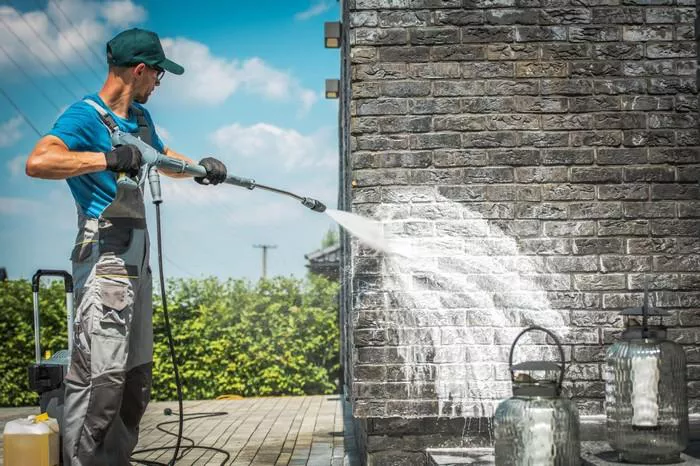Pressure washers are powerful cleaning tools that can make quick work of dirt, grime, and stains on various surfaces. From driveways to decks, they are often hailed for their efficiency and effectiveness. However, one question that frequently arises is whether pressure washers use a lot of water. Understanding the water usage of pressure washers can help homeowners and professionals make informed decisions about their cleaning practices. This article delves into the intricacies of pressure washer water consumption, examining factors that influence usage, comparing it to other cleaning methods, and offering tips for efficient water use.
Understanding Pressure Washer Mechanics
How Pressure Washers Work
Pressure washers operate by using a motor or engine to drive a pump. This pump forces water through a high-pressure hose and out of a nozzle. The resulting jet of water is highly concentrated, allowing it to remove dirt and grime more effectively than a standard garden hose.
The key components of a pressure washer include:
Pump: Increases water pressure.
Motor/Engine: Powers the pump.
High-Pressure Hose: Transports the pressurized water.
Nozzle: Directs the water stream.
Water Usage of Pressure Washers
Gallons Per Minute (GPM) Explained
The water usage of a pressure washer is typically measured in gallons per minute (GPM). This metric indicates how much water the machine uses each minute it operates. Residential pressure washers generally have a GPM rating between 1.2 and 2.5, while commercial models may range from 2.5 to 10 GPM or higher. For perspective, a standard garden hose dispenses water at about 8 to 10 GPM without any nozzle attachment.
Factors Affecting Water Usage
Several factors can influence the amount of water a pressure washer uses:
GPM Rating: Higher GPM means more water used per minute.
Usage Duration: The longer the machine runs, the more water it consumes.
Nozzle Type: Different nozzles produce different spray patterns, affecting water distribution and efficiency.
Task at Hand: Heavier, more stubborn dirt may require longer cleaning times or higher GPM machines.
Comparing Water Usage
Pressure Washer vs. Garden Hose
One of the primary benefits of using a pressure washer is its efficiency in water usage compared to a garden hose. Although a pressure washer uses water at a higher pressure, it often uses less water overall because it cleans more quickly. For example, cleaning a driveway with a garden hose might take an hour and use up to 480 gallons of water (8 GPM x 60 minutes). In contrast, a pressure washer with a 2.5 GPM rating might complete the job in 20 minutes, using only 50 gallons of water.
Pressure Washer vs. Other Cleaning Methods
When compared to other cleaning methods, such as manual scrubbing or using a mop and bucket, pressure washers still tend to be more efficient. Manual scrubbing often requires continuous rinsing and refilling of buckets, which can add up to significant water usage over time.
Environmental Considerations
Water Conservation
Using water wisely is crucial, especially in areas prone to drought or with limited water resources. While pressure washers are generally more water-efficient than traditional methods, users can take additional steps to conserve water:
Choose the Right GPM: Select a pressure washer with a GPM suitable for the task.
Limit Use Time: Only run the pressure washer as long as necessary to complete the job.
Use Efficient Nozzles: Opt for nozzles that maximize cleaning efficiency.
Eco-Friendly Detergents
When using detergents with a pressure washer, choose eco-friendly options. These products are biodegradable and less harmful to the environment, ensuring that the runoff does not negatively impact local water sources.
See Also: How Much Water Does a Pressure Washer Consume?
Practical Tips for Efficient Water Use
Pre-Cleaning Preparation
Before using a pressure washer, take steps to prepare the area. Remove large debris and loose dirt manually. This reduces the workload for the pressure washer, allowing it to clean more efficiently.
Optimal Nozzle Selection
Use the appropriate nozzle for the task. Nozzles are color-coded and range from 0-degree (red) for concentrated power to 65-degree (black) for gentle rinsing. Selecting the right nozzle helps maximize cleaning effectiveness while minimizing water use.
Regular Maintenance
Maintain your pressure washer regularly to ensure it operates efficiently. Check hoses, nozzles, and the pump for any leaks or blockages. A well-maintained machine performs better and uses water more efficiently.
Case Studies and Real-World Examples
Residential Cleaning
A homeowner using a pressure washer to clean their deck and driveway can significantly reduce water usage. For instance, cleaning a 500-square-foot deck with a garden hose might use around 400 gallons of water, while a pressure washer with a 2 GPM rating might only use 100 gallons for the same task.
Commercial Applications
In commercial settings, such as car washes or large-scale cleaning projects, the efficiency of pressure washers becomes even more apparent. For example, a professional car wash using high-efficiency pressure washers can clean multiple vehicles using less water than traditional methods.
Conclusion
Pressure washers, when used correctly, do not use a lot of water compared to traditional cleaning methods. Their high-pressure output allows for faster and more efficient cleaning, which translates to less water usage overall. By understanding the factors that influence water consumption and implementing best practices, users can achieve optimal cleaning results while conserving water. Whether for residential or commercial use, pressure washers offer a water-efficient solution for maintaining clean and presentable surfaces.

